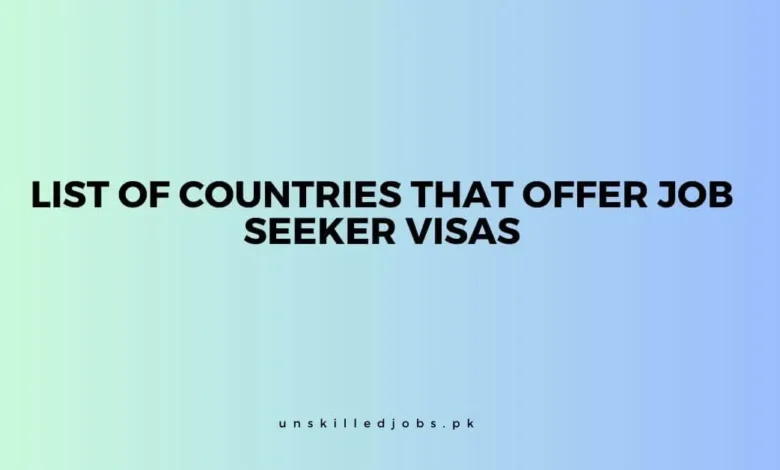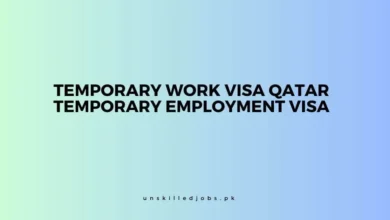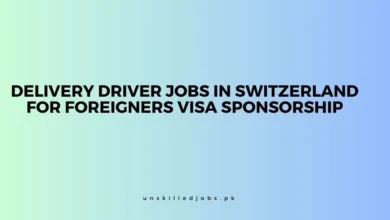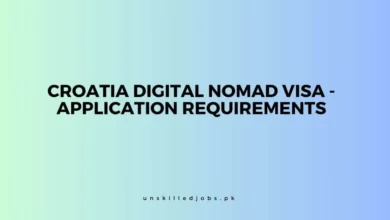List of Countries that offer Job Seeker Visas

A job hunter visa is a short-term visa that lets people enter a country with the sole purpose of looking for work. I made a list of all the countries that give visas to people looking for work. For this visa, you don’t need a job offer from a company ahead of time. A lot of countries, like Portugal, Sweden, Austria, Germany, the UAE, the Netherlands, France, Ireland, and more, started giving visas to people looking for work. The person with this visa can also look for work and accept a job offer.
However, it is important to remember that you need to get a Work Permit in order to stay in the country once you find a job. You don’t have to be able to work just because you have a Job Seeker card. Below is a list of countries that offer job seeker visas, along with their conditions and a link to the application form. If you’re thinking about applying for one, please read this.
List of Countries that offer Job Seeker Visas
Right now, there are 5 countries that let foreigners apply for job seeker cards. Each country has its own rules and ways of applying.
- Germany
- Austria
- Sweden
- United Arab Emirates
- Portugal
- United Kingdom (New)
1) Germany Job Seeker Visa
The German job seeker visa comes with two types:
- Job seeker (Academic): You need a recognized university degree.
- Job seeker (Vocational training): Requires vocational qualification.
- Job offer Required: No
- Stay Duration: Six Months
- Visa Cost: €75
- German Language Required: No
1.1) Germany Opportunity Card
This is a different kind of job search card, but it only works for one year. Additionally, it lets people look for work in Germany. The Opportunity card is based on Points, and all you need are 6 Points to get it.
2) Austria Job Seeker Visa
Austria lets highly educated professionals look for work by giving them a Job Seeker Visa, which is also called the Red-White-Red Card – Jobseeker. Applicants must get at least 70 points to be qualified for the Job seeker visa.
- Job offer Required: No
- Stay Duration: Six Months
- Visa Cost: €150
- Selection Method: Points-Based System
3) UAE Job Seeker Visit Visa
UAE offers Job seeker visas for up to 60,90,180 days to look for employment. It was launched on October 3, 2022. It has several requirements to meet. And you need to be a graduate of any 500 universities in the world.
- Job offer Required: No
- Visa Cost:
- 60-day visa will cost: AED 555.75
- 90-day visa will cost: AED 685.75
- 120-day visa will cost: AED 815.75
- Selection Method: Must hold a bachelor’s degree
4) Portugal Job Seeker Visa
People from all over the world who want to work in Portugal often apply for job seeker cards. It’s good for six months, and you can apply for a residence pass during that time if you can find work.
- Job offer Required: No
- Stay Duration: 180 Days
- Visa Cost: €75
5) Sweden Job Seeker Visa
It was made possible by the Swedish government in June 2022. It also lets you stay in the country for nine months while you look for work. Please look at what the Swedish Migration Agency says you need to do.
- Job offer Required: No
- Stay Duration: 9 Months
- Visa Cost: €190
- Selection Method: You need to be schooled and hold a higher degree, like a master’s, Ph.D., or advanced vocational or professional degree.
6) UK HPI Visa (Job Search Visa)
The UK government started giving out this new visa in May 2022. This type of visa is called an HPI waiver. With this visa, people from other countries can stay in the UK for two or three years to look for work.
Conclusion:
Individuals can explore job opportunities in places like Germany, Austria, Sweden, the UAE, Portugal, and the UK with job seeker cards, without necessarily having a job offer in hand. If you want to work abroad, knowing the unique rules and procedures for each country can greatly improve your chances.
Frequently Asked Questions
-
What is a job seeker visa?
A job seeker visa lets people enter a country simply to look for work. It’s not necessary to already have a job offer.
-
What are the key requirements for a job seeker visa?
Requirements may include holding a degree or vocational qualification, meeting specific points-based criteria, and sometimes having a certain level of language proficiency.





